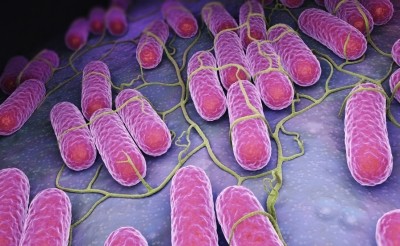Runny eggs safe to eat after 30 years: FSA

The revised advice followed research by the Advisory Committee on the Microbiological Safety of Food, which found the presence of salmonella in UK eggs had been dramatically reduced in recent years.
FSA chairman Heather Hancock said: “It’s good news that now even vulnerable groups can safely eat UK eggs without needing to hard-boil them, so long as they bear the British Lion mark.
“The FSA has thoroughly reviewed the scientific evidence about the safety of these eggs, and we’re confident that we can now change our advice to consumers.”
However, the new advice does not apply to more vulnerable individuals – who require medically supervised diets prescribed by health professionals – and is only for eggs produced under the British Lion Code of Practice.
British Lion Code of Practice
Andrew Joret, chairman of the British Lion Egg Industry Council, welcomed the new guidelines.
“Our producers have maintained the highest standards for two decades to ensure the superior safety of British Lion eggs and we are delighted that FSA has now confirmed that these eggs are safe enough for even vulnerable groups to eat runny or even raw,” said Joret.
“The advice is particularly good news for these groups and will also enable care homes to put many traditional egg dishes back on their menus.”
The National Farmers Union’s poultry board chairman Duncan Priestner said the FSA’s announcement was great news for the industry and was many years in the making.
He added: “Producers’ commitment to controlling salmonella and compliance with the national control programme for salmonella has paid off.
‘Commitment to controlling salmonella’
“We give great credit to the BEIC [British Egg Industry Council] for their persistence and working with the health and food safety authorities and to the standards in the Lion Scheme.”
Tony Lewis, head of policy at the Chartered Institute of Environmental Health, also welcomed the new advice on eggs, but urged consumers to “look for the lion” when considering whether eggs are safe to eat.
“Many eggs are imported into the UK that do not meet the British Lion Code of Practice, and are therefore not stamped with the lion mark,” said Lewis.
“Our advice is that people should only consider eggs stamped with the lion mark to be safe to eat raw or lightly cooked.”
Meanwhile, in August, the number of imported eggs contaminated with the insecticide fipronil was estimated at 700,000, leading the FSA to reveal recalls for a wide range of food products affecting some of Britain’s biggest retailers.
How the egg scare started in 1988
The FSA’s new guidelines come nearly 30 years after former Conservative health minister Edwina Currie warned in 1988: “Most of the egg production in this country sadly is now infected with salmonella.”
The minister’s warning led to a dramatic dip in egg sales, the culling of thousands of birds and, ultimately, her resignation.















